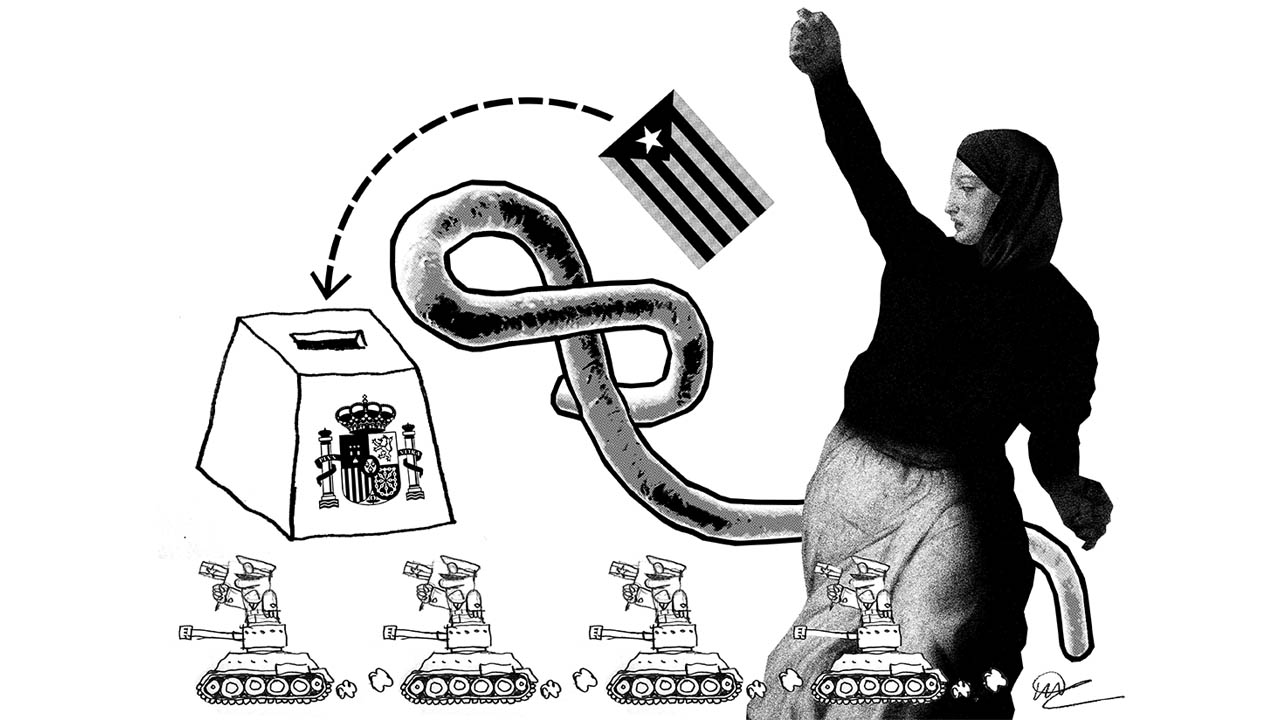Off the Radar: What's going on in the world
 CREDIT: IAN INDIANO
CREDIT: IAN INDIANOThis week in Off the Radar: A new Ebola epidemic, a coup in Myanmar and more.
The plurality of points of view is fundamental to understanding what’s happening around us.
Like the old saying, “one man’s trash is another man’s treasure,” all conflicts have at least two sides, and to look at it objectively it’s important to understand what each one is saying and see the big picture. This huddle of points of view that inhabits the inner and outer world is exactly what makes us humans. And reading the news, also is in a way, a study of the effects of human behaviour on the world. To help you stay informed, here are five news stories that you probably don’t know about:
Coup in Myanmar
Myanmar, also known as Burma, is going through a serious political crisis. The country, governed by an oppressive military junta from 1962 to 2011, had its government overthrown in an army coup on Feb. 1. The coup involved arresting many opposition leaders and journalists. Since then, hundreds of thousands of people went to the streets to protest, demanding democracy be restored and their leaders to be released. One of the detained people is Aung San Suu Kyi, a 1991 Nobel Peace Prize laureate and current head of state. Since the coup, the country suffered telecommunication interruptions and armoured vehicles and troops were sent to control the protests, raising the possibility of a crackdown.
New Ebola epidemic in Guinea
A new Ebola epidemic was officially declared in Guinea after the deaths of at least three people. There are at least four other confirmed cases in the country. The virus is transmitted to humans by animals like chimpanzees and bats. The outbreak probably started after a nurse died from the disease on Jan. 28. In Guinea community funerals are common, where people help to wash the body of the deceased. Ebola has a long incubation period making the bodies of the victims particularly toxic. These are the first deaths since 2016. To control the epidemic the government is acquiring vaccines and newly developed drugs.
Colombia sends help to Venezuelans
The Colombian president announced a 10-year protection statute to more than 1.82 million Venezuelans living in Colombia. The statute gives Venezuelans permission to stay in the country and allows them to apply for permanent residency. It will also help the migrants to access social services and find work. Nowadays, more than 1 million undocumented Venezuelans moved to Colombia running away from the hyperinflation, food shortages and low wages found in a Venezuela in crises. The measure was applauded by humanitarian leaders and institutions around the world, including Pope Francis, who is also South American.
New anti-radicalism law accused of being anti-Muslim in France
A new bill aimed at rooting out Islamic extremists in France is facing retaliation from activists, who claim that it attacks religious freedom and turns all Muslims into suspects. A draft of the bill was recently voted, and it should be approved soon. President Emmanuel Macron endorsed the bill, saying that it will protect French values like secularism and gender equality, and also prevent radical and violent ideas. However, activists argue that Macron is using the bill to gain support from conservative and far-right voters for the next election. They also reminded that most French Muslims (which represent the second biggest religion in the country) do not espouse extremist views.
Catalan separatist movement gains force after election
A regional election was held under severe COVID-19 restrictions in Spain. The biggest parties fighting for the parliament seats are the Socialists (against Catalonia’s separation), the Republic Left of Catalonia, and the Together for Catalonia (both pro-separation). A tight race is expected. The election is another chapter of the decades-long debate about whether Catalonia should become an independent state or stay as an attached Spanish territory. In 2017 a separation bid was considered unconstitutional and failed. Many separatist leaders were arrested or exiled.

















